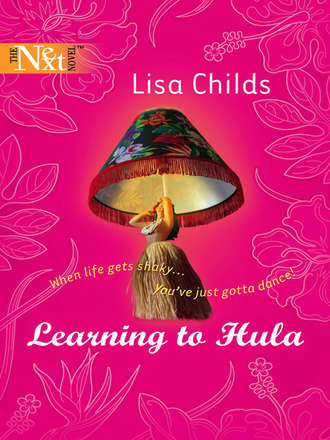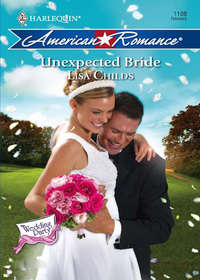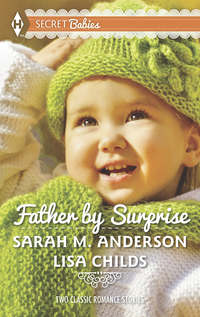
Полная версия
Learning to Hula
The mayor of our town is a bachelor, so as the bank manager’s wife, Pam has been the first lady of Stanville for as many years as Keith’s held his position. She’s used to maintaining a certain level of decorum, of class, and commanding respect because of that.
That’s probably why she and Rob had always clashed. Rob never cared what people thought of him. No, that’s not true. He wanted people to think he was fun, and enjoy being around him. He just hadn’t cared whether or not they’d respected him.
I wonder how much respect Pam is going to get for leaving her husband and moving into the tiny apartment above The Tearoom. But that’s her problem.
Right now she’s worried about mine, floundering to find words to no doubt offer her infinite opinions. I’m loving this more and more.
“Yes?” I tease, knowing that somewhere Rob is giving me a thumbs-up.
“You really…”
I catch Emma’s gaze, and she starts giggling now. “Oh, yeah, she really,” she adds to the bizarre conversation, one that would cause anyone eavesdropping to think we’d had more than a sip of wine.
“But Holly, how could—”
“She snapped,” Emma says, confirming my suspicion that she had watched the whole thing.
“I snapped,” I agree wholeheartedly.
Pam finally finds her voice and an opinion. “I think you better go back to that grief counselor.”
But this is the first time in six months I feel like I don’t need counseling. Everyone else might have thought I was doing better, but I didn’t. I felt as if I was in a haze, barely able to function.
Until now. I snapped, all right—everything back into place.
The setting sun is painting the lawn gold when I pull into the driveway. I press the button for the garage door, and as it’s opening I ease the Tahoe close to the stall on my side of the garage, except now both sides are mine.
Since I loaned Rob’s ridiculous orange Beetle to Emma’s college-commuting daughter, the garage is empty when I’m not home. Except for tonight. Tonight boxes randomly dot the cement floor. I press on the brakes to keep the Tahoe from crushing them. What’s happening now?
Has Keith snapped like I did tonight? Instead of letting Pam take her sweet time moving her things out, has he flung them into boxes and parked them in my garage while he’s changing the locks on the house?
She’s my sister, and I love her. But I feel nearly as much satisfaction in that as I had in crushing the Kitty Cupcake display.
Rob had often said that Keith needed to grow a set of balls. He always let Pam boss him around, telling him what to wear and how to act. I guess she’s like that because she’s the oldest, but Emma and I had never put up with her bossiness. Keith, on the other hand, had had no problem with it for twenty-five years.
Pam was the one to leave, although she and Keith had kept that to themselves for a while. Only a few more know it now. She stayed with me after Rob died, helping me through those first few weeks of paralyzing grief. I thought then that I had been her only reason for staying; I hadn’t known how unhappy she was in her marriage…until she admitted to needing to get away from it…and Keith.
She might have stayed with us indefinitely if not for Robbie taking over in the prank department for his father. Pam hadn’t appreciated his putting cellophane over the toilet seat in the guest bathroom, nor his switching of the hot and cold knobs in the shower. I probably should have gotten upset about his behavior, too, but it had felt good to laugh again. And because of Pam’s control-freak tendencies, I hadn’t wanted her to stay indefinitely.
So she’d gone back home, but she never returned to Keith’s bed, choosing to sleep in her daughter’s old room until she could find another place to live. He offered to move out, but Pam wouldn’t let him. Since the separation is her idea, she feels she needs to be the one to leave.
I think there’s more to her decision than fairness, though, because she had certainly never worried about that when we were growing up. I think she wants to leave the old farm, like Mom did when Dad died. Pam wants to get away from here and start over completely.
I can’t say the thought never crossed my mind during the past six months. But I’m not like Pam. I can’t consider just what I want. I have to think about the kids, even if they might not always believe that I do.
I park the Tahoe, and as I jump out, I glance across the gravel drive to where Pam’s modern house juts behind a stand of pines. The big tinted windows are aglow with the sunset; I can’t tell if Keith’s home or not. No locksmith truck is parked in the driveway. Maybe they’ve already been and gone. It’s pushing eight o’clock now.
I step over boxes on my way to the side door, which stands open. Light from the kitchen spills into the garage. “Hello?” I call out, a bit nervously. Since Rob’s death, I’m not quite sure of the reception I’ll get in my own home.
Some garbage bags sit outside the laundry room. I can’t believe the kids would have been cleaning while I was gone. They don’t do their chores when I’m here, nagging them. Like Pam, they’re using Rob’s death to excuse some of their behavior.
But maybe that has changed.
“What’s going on?” I call out again, when no one joins me in the kitchen. My voice bounces off the antique-white cabinets and oak floor.
From the dirty dishes sitting on the Corian island instead of in the sink, I’m thinking not that much has changed. It’s good that the kids ate dinner while I was with my sisters, but they could have cleaned up the mess.
The garbage bags probably contain Pam’s clothes, things Keith hadn’t felt comfortable leaving in the garage. Even fed up, he could be considerate.
I hear a door open from one of the bedrooms off the hall at the other end of the great room. The master suite is next to the formal dining room, which is separated from the great room, kitchen and breakfast nook area by plaster columns. Rob and I spent a lot of time designing our home so everyone would have their privacy, most especially us.
Claire comes around the corner, her mouth pulled into its perpetual pout. Even with the sulky face, she’s a pretty girl with her father’s big, dark eyes and my golden-brown hair. I gesture to the dishes on the counter—I think kitchen cleanup was her chore tonight—but she crosses her arms across her blossoming chest instead.
If she’s hoping for a reaction, I don’t have one for her. Despite having only a half glass of Lambrusco, I’m feeling mellow tonight.
“Ohh, mutiny,” I tease her.
She glares at me, a look that threatens that I’ve seen nothing yet. Like everyone else, I could blame Rob for her recent change in behavior, but I think hormones might have as much or more to do with it. My mom warned me that this is the age at which my sisters started clashing with her. I, of course, was the perfect child.
“She’s home!” Claire screeches, and there’s pounding as Robbie runs up the steps from the walk-out basement, which is divided into our family room, Rob’s den and the guest suite where my son terrorized Pam. I don’t have to guess where he was; Robbie’s always on the computer in the den and too preoccupied to come when you call him. So why is tonight different?
Uneasiness tightens the knot in my chest, the one that has made it a little hard to breathe since Rob died. I ask again, “What’s going on?”
Robbie pushes his glasses up his nose, his big, dark eyes magnified by the thick lenses. At fifteen, he’s about the same height as Claire and probably weighs less, even though she’s a stick. Unlike his giant of a father, Robbie looks the part of the computer geek, complete with asthma inhaler. Even though he has physical limitations, he’s never felt inferior, thanks to all the time and attention Rob gave him. They’d shared so many interests, probably too many considering the pranks Robbie played on his aunt.
And Claire, she’d been the proverbial Daddy’s little girl, his spoiled princess. He’d forever been buying her stuffed animals and candy. I guess I’d been his princess, too, because he’d done the same for me. Of course, he’d eaten more of the candy than I had.
Despite Robbie’s and Claire’s mulish expressions, my heart softens for my fatherless children, and I start putting the dishes into the sink myself, triumphant all over again for what I did to Smiley’s display. Those damn cupcakes deserve far worse for what they stole from us. I wonder where the factory is…?
“Mom!” Rob shouts, drawing my full attention with his urgency. He usually speaks very softly, only raising his voice if Claire’s irritating him.
“What?”
“Did you really do it?” he asks, his words quivering with emotion.
Oh, crap. They heard already. Those probably aren’t Pam’s things packed in boxes and garbage bags; the kids probably packed mine, ready to commit me to the loony bin. How can I explain that the attack was a good thing?
“Who told you?” I ask.
Even though I’m stalling for time, I am also curious about who’d been in the crowd that had gathered for my performance.
Claire and Robbie share a quick glance.
“You told us…this morning…when you dropped us at school.” She says each part separately, as if reading a list of my offenses to a judge. Rob and I always said she’ll be a lawyer someday.
Since I hadn’t planned my victory over cupcake evil in Smiley’s, I realize with a quick flash of relief that they’re talking about something else. Should I tell them about Smiley’s before someone else does?
I answer myself with a shrug. They lived with their father for fifteen and eleven years respectively; they’re used to outlandish behavior. Their friends had envied them their “fun” dad. I’m not so sure a crazy mom is envy-inspiring, though.
“So what are we talking about here?” I ask.
“The business.” Robbie’s speaking through gritted teeth, his braces scraping together due to his overbite.
I wince over what the orthodontist will say at our next appointment.
“Did you really sell it?”
Okay, they still aren’t happy with my decision. “I told you why—”
“Told!” Robbie interrupts, his face flushing with bright red blotches. Maybe his acne is flaring up again. “You tell us what you’re doing. You don’t ask what we want!”
That’s kind of how it works since I’m the parent and they’re the children, but I don’t say this. I’ll let them vent. Tonight.
“It’s not fair,” Claire chimes in like a backup singer. This is a chorus she’s sung often.
“You got rid of Dad’s car—”
“Just a loan,” I remind them.
When, or should I say if, Robbie gets his license, the car will be back in the garage, waiting for him. A five-year-old Volkswagen is a little easier to hang on to than a business.
“And his clothes!”
No matter how much he grows, Robbie would never fit into those. Not that Rob had been obese. He’d been a bear of a man, six feet five with broad shoulders, big all over. I thought we’d all agreed that giving his clothes to the Salvation Army was a good thing, something Rob would have liked, giving help to the recent hurricane victims. Rob was the kind of guy who’d willingly give someone the shirt off his back. In the case of the loud Hawaiian shirts he’d favored, though, no one would probably want those.
“You’re getting rid of everything,” Claire says, her words followed by a little hiccupping sob.
Robbie straightens up, just a hair taller than his little sister. I don’t think I’ve ever seen him stand as tall as he is now. “We figure you’re probably selling the house next, so we started packing our stuff.”
So that’s what all the boxes and bags are for.
“C’mon, I’m not selling the house.”
Not that I hadn’t considered it. Living in my dream house without the man who had shared that dream had been a nightmare for a while. Guilt flashes through me, and I think they catch it.
Robbie’s face reddens more, and Claire’s expression gets sulkier. “You want to get rid of every trace of Dad,” he says accusingly.
“It’s not fair.” Claire sings her familiar chorus. “You’ve taken everything of Dad’s away from us!”
It’s not the first time I’ve heard this; they said it all, not as angrily, though, when I first told them of my intention to sell the business. But this is the first time I hear what they haven’t said—that they blame me for taking their father away.
Like I blame Kitty Cupcakes.
And before that the officer who’d brought me the news of Rob’s death.
Rob died in a car accident, having crashed his winter-beater, four-wheel drive vehicle into a tree. At first it had looked as if road conditions, icy even in March thanks to Michigan’s mercurial weather, might have caused the crash.
I’d sworn at the officer for not making the roads safe to drive, although now I’m pretty sure he hadn’t been responsible for that. I think I might have slugged him. In fact, I can’t remember exactly what I did.
I’m glad the kids hadn’t been home that night. I’d sent them over to Emma’s just a little bit before, to return the kitten they’d taken from her barn and sneaked into the house. I’m grateful they didn’t see me like that as I was more out of control than at any other time in my life—what happened in Smiley’s doesn’t even come close.
After the coroner ruled Rob’s death had been caused by a heart attack, I didn’t apologize to Deputy Westmoreland. I should, but I don’t know what to say.
I don’t know what to say to my kids now. I know how much of a release it is to have someone or something else to attack when you’re hurting inside, but they can’t really blame me for their father’s death…unless they think I should have stopped him from eating those cupcakes. Maybe they don’t realize how much I tried, and I should try to convince them that I did. But I don’t think they’re ready to listen to me.
Sometimes you have to let them go….
Despite my sister’s advice ringing in my ears, I follow my kids as they rush out of the kitchen and down the hall to their rooms. Ever since six months ago, I’ve been struggling with that letting-go part of parenting.
Rob’s parents wanted the kids to spend a couple of weeks with them this summer, but they live in Indiana, and that was too far away from me. Because of the business, I hadn’t been able to be away for that long. But I know my in-laws are hurting, too, so we compromised, and I brought the kids down for a weekend.
The kids are not happy I followed them to their rooms now. They’ve turned and are glaring at me from just inside their doorways. So I don’t make things worse; I stop myself from yelling at them for yelling at me. But I can’t think of anything to say in lieu of yelling. They, however, don’t have that problem.
“I hate you!” they both shout before slamming their doors, in such perfect unison that I wonder if they practiced while I was gone. That opinion is the only one they have shared since thinking macaroni and cheese the perfect side dish to every meal, which is probably only marginally healthier than Kitty Cupcakes.
I know they don’t mean it, and that eventually they’ll get over this. They’re good kids, and we’ve always been close. But as I head toward my empty master suite at the other side of the house, I don’t feel so powerful anymore.
Then I remind myself, Wonder Woman didn’t have any kids. Neither did any of Charlie’s Angels.
STAGE 3
I notice the sign as I pull out of the driveway. I’m not sure if I missed it the night before, or if they put it up when they headed out to the bus this morning. It’s a For Sale sign, Worst Offer, for our once happy home.
Despite the sentiment, or shall I say resentment, behind it, I find myself chuckling. Even though their grades, usually straight A’s, have been slipping since school started a few weeks ago, I’m reassured that they’re still smart. Asses. But smart.
They might not be doing their homework lately, as much from laziness as taking advantage of their teacher’s sympathy over their loss, but they worked last night. Between packing up their stuff and making this sign, they were very busy. Mother’s pride spreads warmth through my chest, dispelling some of the tightness their angry words had left me with last night.
I glance in the rearview mirror, at the box in the back of the Tahoe, and chuckle louder. As the tires bounce over the ruts in our private dirt road, I imagine the hula girl swaying madly inside the box.
Just inside town, I drive by the drop box for Goodwill. I should leave the lamp there, but for some reason, possibly the guilt trip the kids laid on me last night, I keep driving on through Stanville. With its canopied storefronts and brick sidewalks, it could grace any Christmas card, it’s that quaint.
I’m almost to work when I remember I don’t work there anymore. Brad asked me to stay on, but I refused, as I don’t believe they really want me there. He was just being sweet, and I wouldn’t feel right about it; the business is theirs now. I’ve taken them on as a client, though, for my accounting business. I’ll do their bookkeeping and payroll, just as I’ve been doing for my mom’s tearoom, from the office I’ll have in my house, in Rob’s old den. But for the day-to-day stuff, for the past six months I’ve been training Steve’s mom to answer the phones and set appointments.
It’s likely the training took so long because of that haze I was in, or maybe she doesn’t pick up on things as quickly as her son. Any of the guys could have learned to do those duties themselves, but they may have wanted to keep that maternal influence in the office. For years, I’d been the maternal element.
I miss it now—I’d be lying if I said I didn’t—but I won’t miss being there without Rob and feeling guilty because he’s not. I only worked there to spend time with him. He’s the one who loved the place. He started it so he could quit his IT job in the city, save the commute and avoid the travel he’d had to do, and spend more time with his family.
Being at the office since Rob’s death only served to remind me that he hadn’t been able to live that part of his dream, hadn’t been able to spend more time with us. So I actually feel relief that I sold it. I smile as I let the feeling wash over me like the light rain that’s falling, washing the dust off the Tahoe.
The kids might be mad now, but in time they’ll see it was the right decision, not just for me but for them, too. I’ll have more time to spend with them now, since I’ll be working from home. I’m not sure how they’ll feel about my converting Rob’s den, though. But if they’re going to heal, they have to accept that he’s gone, and they can’t do that if I leave everything the same, as if he’ll walk through the door any minute and break our tense silence with his big, booming laugh.
I pull into one of the diagonal spaces in front of The Tearoom. I’d been much older than my children, in my early thirties, when my dad died, but I’d resented some of the decisions my mom had made. Selling the farm. Buying this place.
I hadn’t understood the stages of grief then. I hadn’t accepted that Dad wasn’t coming back. I’d thought we should keep the farm for him because he’d loved it so much.
At that time, I hadn’t realized that my mom had to do what was right for her, so that she could move on. So that she could find her way past her grief and be there for us again. Hopefully, my kids will understand that someday, as well. Since they’re younger than I was when Dad died, I have to be patient, have to give them more time.
When I step through The Tearoom’s door, I catch a mad flurry of movement behind the counter. My mother is quickly draping napkins over the pastries in the display case.
Despite the crowd, driven in, no doubt, by the hunger for gossip as much as the rain, the room is dead silent, like Rob’s funeral had been when the DJ had played the first few notes of the Stones’ “You Can’t Always Get What You Want.” Rob had loved The Big Chill so much he’d worn out two VHS tapes and a DVD of it.
My mother says to me, her small arms spread wide and protectively across the counter, “Please, don’t hurt them! They can’t defend themselves!”
The room erupts into raucous laughter, just as it had at Rob’s funeral. He was only her son by marriage, but they shared a lot of the same traits, such as knowing how to work a room.
I take an exaggerated bow, and everyone applauds.
I’m still laughing as I join her behind the counter, where she grabs me in a fierce hug. I see the concern darkening her blue eyes to navy, and know that what she did wasn’t a joke but damage control. For me.
“I’m okay,” I tell her.
She arches a golden brow in disbelief. She’s dainty and petite, and my dad, although not as big as Rob, had been really strong from all his hard work on the farm. But she was the one we feared as we were growing up. While Dad was easygoing, Mom never let us get away with anything. Then or now.
“I needed to do that,” I tell her. “I’m really okay. You know.”
Nobody knows like she does.
Less than a decade ago, she stood in my shoes. I’ve found comfort in that, in having her as my little hundred-pound guidebook to widowhood. I tried doing everything she did, moving on like she has, but I couldn’t do it just like she did. I needed to find my own way…in Smiley’s store.
“I know you’re okay now, sweetie,” she says with a smile, and wraps her hand tight around mine.
Not for the first time, I see how similar they are—blue veins running under thin white skin. Initially I noticed at Rob’s funeral, when she’d taken my hand in support. They’re good hands. Strong, capable hands.
“Thanks, Mom,” I say, squeezing hers before releasing it so she can rush off to serve customers.
She needed this place when my dad died. She’d needed to be needed, to wait on people, to take care of them. With us grown and Dad gone, she’d had no one else to satisfy her desire to nurture.
Coffeepot in one hand, hot water in the other, she pauses on the other side of the counter and turns toward me again. “I have a carrot cake in the back that’s been giving me trouble. You want to take care of it?”
Would I ever! With a fork and knife instead of my fists and feet. I’m not a complete militant when it comes to sweets. I have my weaknesses, and my mother knows them. She winks before trotting off.
She’s sixty-seven now, but men’s heads still turn when she walks past. I don’t think it has as much to do with her youthful face and figure or her golden-blond hair and bright eyes as her spirit.
She’s indomitable.
I will be, too. I just need to figure out the rest of it. What happened in Smiley’s yesterday wasn’t planned. As I admitted to my sisters, I just snapped.
I’m sitting at the counter, a pot of fruit-and-almond decaf tea steeping in front of me. Mom always collected tea sets, but the collection had gotten out of control as my dad, my sisters and I had given one to her for every birthday, Mother’s Day, Christmas and anniversary. She’d had very little to buy, other than the building, to start her business. I guess she was right, six years ago, when she tried to convince us that selling the farm and starting this tea shop was meant to be.
The pot that sits before me now is one Rob bought for her, a ceramic one with a face like Groucho Marx with the bushy eyebrows, big nose and cigar. I smile at it as I fork small bites of carrot cake into my mouth. I’m savoring the sweet combination of cream cheese and my mother’s secret spices when Pam plops down next to me.
“Hypocrite,” she mutters as she clutches a mug of coffee between her hands, inhaling the scent of the beans Mom uses.
There’s no use talking to Pam until she’s had an IV of caffeine in the morning. I might have forgotten that from when we were younger if not for those weeks she stayed with me. Then I’d been careful not to talk to her in the morning, especially if Robbie had played one of his father’s pranks on her.
But today I risk it.
“I’m getting a serving of vegetables by eating this. It has carrots in it,” I point out.







